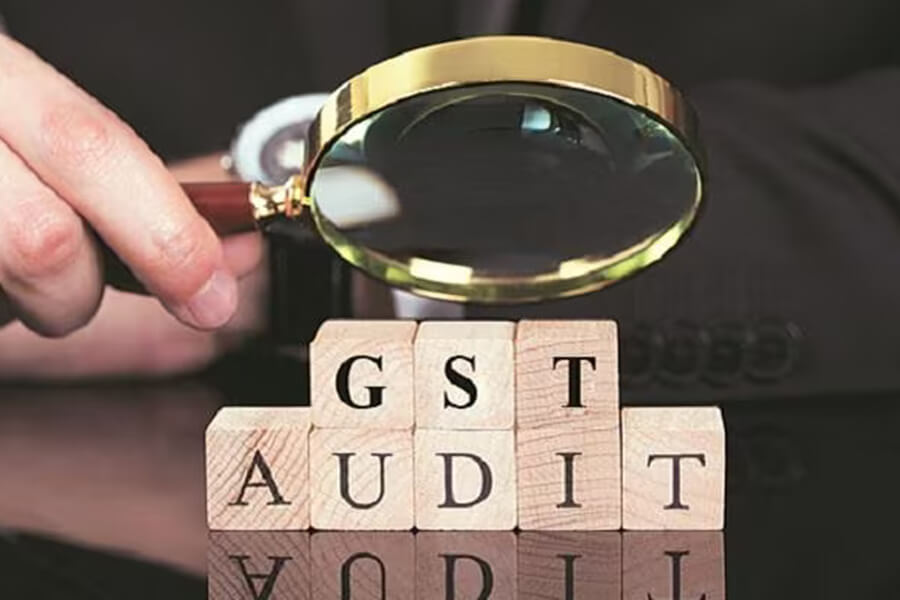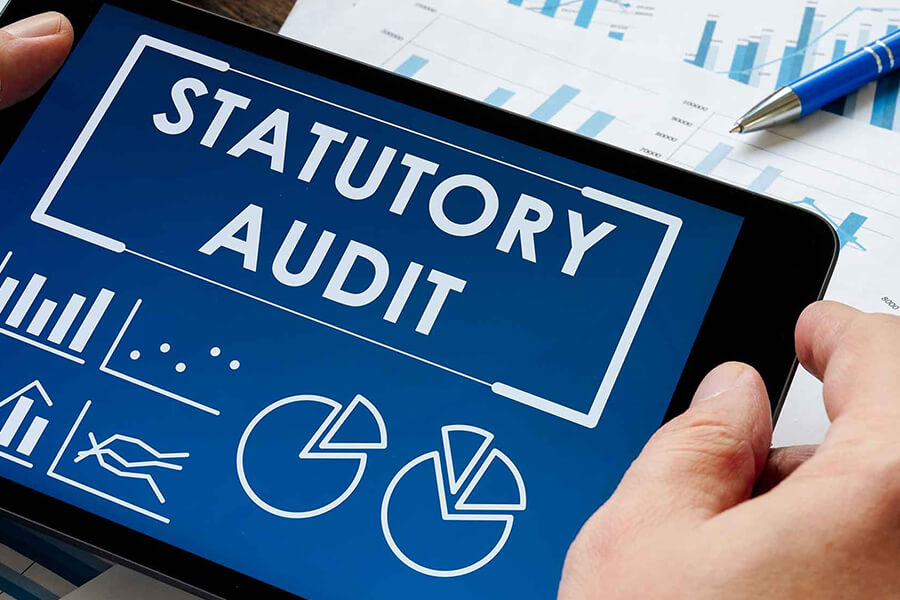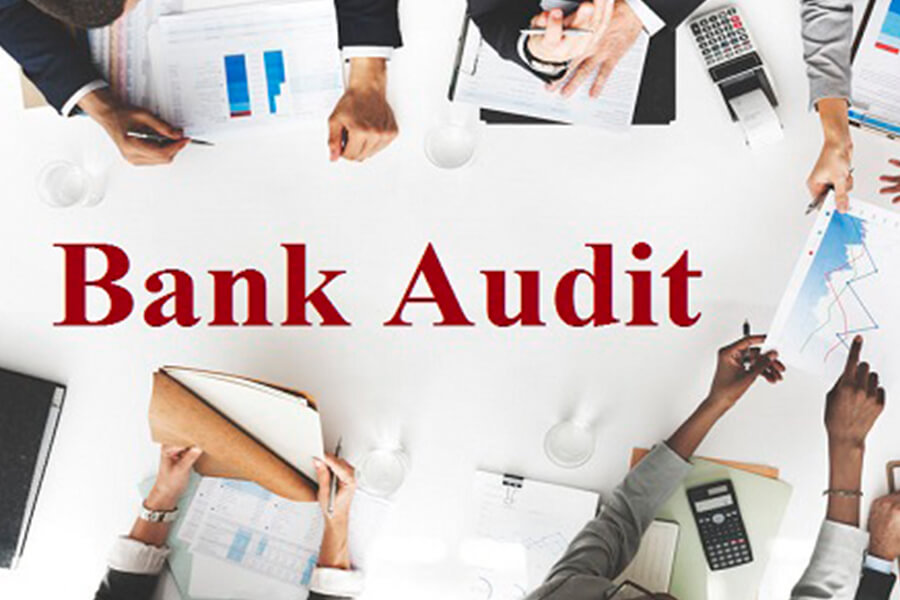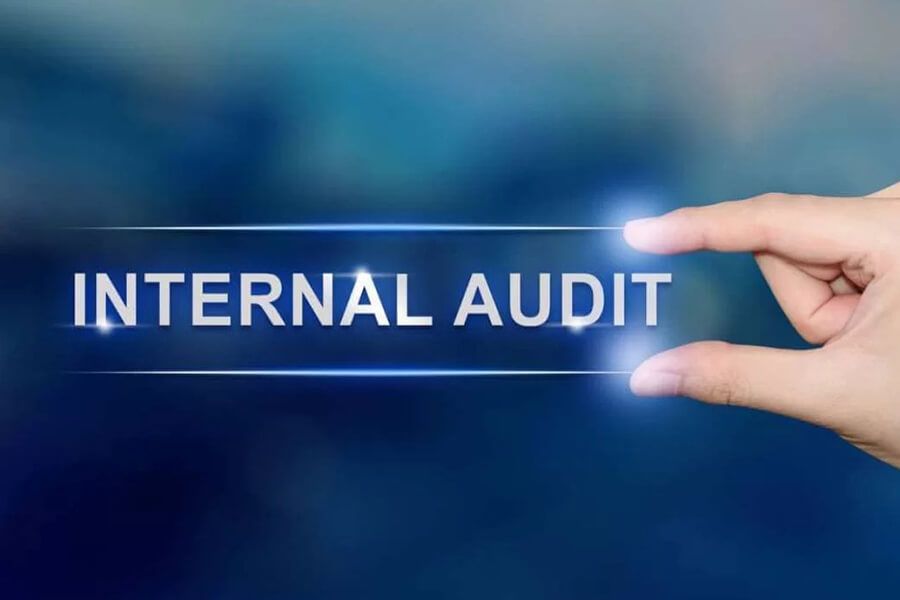
GST AUDIT
GST AUDIT
GST Audit will apply every year for those GST registered business (GSTIN) having turnover more than Rest 2 crores, by the sale of goods or services in the financial year.
Please note- For businesses with an annual turnover of less than Rs.5 crore, filing of GSTR-9C for FY 2018-19 and FY 2019-20 has been waived off. GSTR-9C can be self-certified by taxpayers with turnover less than or equal to Rs.5 crore from FY 2020-21 onwards. The reconciliation statement in FORM GSTR-9C for the FY 2020-21 will be required to be filed by taxpayers with annual aggregate turnover above Rs 5 Crore.
Latest Position is as follows.
| Annual turnover | GSTR 9 | GSTR 9C |
| Up to 2 Cr | Optional | N/A |
| More than 2Cr. – 5 Cr | Filling is mandatory | Optional (Benefit Given) |
| More than 5Cr | Filling is mandatory | Filling is mandatory |

STATUTORY AUDIT
STATUTORY AUDIT
Statutory Audit is a mandatory compliance required in various Laws and regulations. Such as Companies Act, 2013 requires all companies to get it accounts audited by a Chartered Accountant irrespective of transactions or turnover. Also LLP Act, 2008 requires statutory Audit with turnover limit of Rs. 40 Lakh and Capital contribution crossing Rs. 25 lakh.

TRUST UTC AND AUDIT
TRUST UTC AND AUDIT
Main purpose of audit of a trust is for the auditor to satisfy himself about the genuineness of the claim for exemption under section 11 and also whether the institution has complied with all the requirements prescribed by the statute.
UTC is issued for the purpose of government grants. Audit of expenditure from grant received from government and utilisation of the fund is given in this certificate. It is compulsory for all trusts receiving government grants to give this certificate duly certified by th Chartered Accountant

Audit of Societies
Audit of Societies
Let us now discuss the provisions for Audit as Per Section 17 of the Co-operative Society Act, 1912
The Registrar shall audit or cause to be audited by some person authorized by him by general or special order in writing on his behalf, the accounts of every registered society once at least every year.
The Audit under sub-section (1) shall include an examination of overdue debts, if any, and a valuation of the assets and liabilities of the society.
The Registrar, the Collector or any person authorized by general or special order in writing on his behalf by the Registrar, shall at all-time have access to all the books, accounts, papers and securities of a society, and every officer of the society shall furnish such information concerning the transactions and working of the society as the person making such inspection may require.

Special Purpose Audit
Special Purpose Audit
Special purpose audits refer to those circumstances in which the auditor is required to report on specific financial information for specific purposes to specific users, in comparison with the general audit of financial statements.
We assist our clients with regards to any special purpose audit for any statutory or non statutory requirements.

Limited Review Report
Limited Review Report
A review provides limited assurance rather than a reasonable amount of assurance, so in simple terms, a review reports on the plausibility of the financial statements whereas an audit provides a reasonable level of assurance in the form of a positive statement such as ‘presents fairly’ or ‘presents a true and fair view’
Limited Review can be defined as the audit of financial statements on quarterly/Half yearly basis.
Listed companies are required to conduct limited review through their statutory auditors.
Every listed co. under clause 41 of the listing agreement is required to furnish the unaudited quarterly/half yearly result in the prescribed format to the concerned stock exchange within 45 days of the end of respective quarter.

Bank Audit
Bank Audit
A bank audit involves routine testing and procedures to check for legitimacy and accuracy within a financial institution’s controls, activities, records, and policies. It also entails identifying any risks within the business and offers recommendations in order to address those risks.
Most importantly, a bank auditor’s job is to reveal any activities going on that are in violation of the law. Once a bank auditor has conducted a full review of a business, they can suggest ways to fix any issues that they’ve discovered, or they can see to shutting down a business that is operating wrongfully.
Banks, credit unions, and financial institutions must be regularly evaluated to ensure that they are following all of the required regulations and operating in an effective and accurate way. It is necessary to ensure that a financial institution’s activities are in compliance with the law, industry standards, and their own internal policies.
There are several software solutions to help make the bank audit procedure easier and smoother for all parties involved. There are also companies to help you develop your bank audit framework to best handle the process.

TAX AUDIT
TAX AUDIT
A tax audit is an examination of your tax return by the IRS to verify that your income and deductions are accurate. A tax audit is when the IRS decides to examine your tax return a little more closely and verify that your income and deductions are accurate.
As per section 44AB, following persons are compulsorily required to get their accounts audited : A person carrying on business, if his total sales, turnover or gross receipts (as the case may be) in business for the year exceed or exceeds Rs. 1 crore.
Tax Audit Report to be filed Electronically by the chartered Accountant to the Income Tax Department. After filing the Income Tax report by the Chartered Accountant, the taxpayer needs to approve the submitted reports using an E-filing account with the Income Tax Department.
A tax audit is an inspection under the Income Tax Act. It helps authorities ensure there are no tax discrepancies. Professional income over Rs.50 lakh necessitates tax audit. Not doing a tax audit can lead to penalties up to Rs.1.5 lakh.

INTERNAL AUDIT
INTERNAL AUDIT
The role of internal audit is to provide independent assurance that an organisation’s risk management, governance and internal control processes are operating effectively. … Typically this is the board of directors or the board of trustees, the accounting officer or the audit committee.
An internal audit should have four general phases of activities—Planning, Fieldwork, Reporting, and Follow-up. … The process of issuing an internal audit report should include drafting the report, review the draft with management to ensure the accuracy of findings, and issuance and distribution of the final report.
An internal auditor is an auditor who is appointed by the shareholders of the company in order to carry out the internal audit function. Generally an employee of the company acts as an internal auditor, whereas some companies appoint an external expert as an internal auditor.

STOCK AUDIT
STOCK AUDIT
Stock audit or inventory audit is a term that refers to physical verification of a company or institution’s inventory assets. Every business organization needs to perform an audit once a year to update and ensure that the physical stock and the computed stock match.
Stock audit or inventory audit is an accounting process which is performed to calculate acompany’s total stock of physical goods/raw materials. … The stock audit helps to keep a track of the amount of physical assets remaining and make necessary arrangements to order new stock.
“Stock Audit should be conducted by appointing Chartered Accountants, who are in our panel as Stock Auditors, for Working Capital Limits of ₹ 3.00 Crore & above (both Fund based and Non Fund based Limits) where the primary security is hypothecation of Stock and/or Book Debts once in a year”

